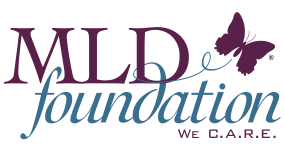Earlier last month we had the opportunity to see several presentations about the Leukodystrophy Center of Excellence (CoE) at Children’s Hospital of Philadelphia (CHOP), which opened today, May 1st.
The mission of the [CHOP Leukodystrophy CoE] center is “to deliver cutting-edge, integrated, multidisciplinary clinical care, diagnostic evaluation, and therapeutics to infants, children and youth with inherited white matter disease.”
We are excited about the multi-disciplinary approach of collaborative and comprehensive care this center is now providing for leukodystrophy patients and families. Under the directorship of Dr. Amy Waldman, care plans are being developed by teams of specialists, with a designated CHOP care coordinator and extensive family/caregiver involvement. The CHOP team will include a standard suite of specialists and will include additional experts from other CHOP specialties who will come and go as situations arise. Appointments and treatments will be consolidated into one day’s visit, where possible, so families don’t have to make multiple trips to the CoE thereby improving the scope of care and reducing the burden on families and patients. We are planning to have representatives from CHOP come and present at our MLD Family Conference™ in Delaware this July. We also hope to hear 1st hand reports from Philly area families about the CHOP CoE.
Dr. Escolar’s Program for the Study of Neurodevelopment in Rare Disorders (NDRD) at Children’s Hospital of Pittsburgh, the White Matter Disease Program under Dr. Vanderver at Children’s National in DC, Dr. Eichler’s ALD Connect program at Boston Children’s, and the Kennedy Krieger Institute Moser Center for Leukodystrophies each offer similar but independent programs, each with their own focus and roots.
MLD Foundation is an avid supporter of helping these existing centers work more closely together to improve patient care for all the leukodystrophies and to improve how network and clinical data is gathered, shared, and studied to improve care, advance understanding, and expedite therapies. This will require helping the centers to work more closely, establishing common methodologies, expanding their capabilities to serve all leukodystrophies, and putting more uniformity and structure into the clinical care and research strategies. As resources become available the program can be expanded to include CoE’s in other parts of the country so every leukodystrophy family has a CoE close to them.
We are actively working with GLIA (Global Leukodystrophy Initiative – a two-year old international collaboration of leukodystrophy clinical and research experts), industry pharma partners, advocacy groups, and other MLD experts to develop standards of care, registries for common data collection, resource directories, access to experts, training and awareness, and maybe even provide some seed funding to help new centers to launch. Imagine if these experts were able to implement CoE’s for leukodystrophies at all of their home medical centers – what a powerful and accessible clinical care and research force that network would be.
MLD Foundation’s OpenNHS Manifesto offers a peek into how we think pre-clinical Natural History Study collaborations should operate. We’re thinking the CoE picture should have similar overriding and undergirding principles. Maybe an OpenCoE Manifesto is in order?
Congratulations to CHOP!

Hello,
My name is Denise Rose, I have a 3yr old grandson name Jorian Scott, that has recently been diagnosed metachromatic Leukodystrophy. He used to walk, now he can take steps with help, and he struggles to sit up, so his back hurts and spasms often. He is very vocal, eats & drinks well, but he has declined physically so much.
Although we totally respect his current neurologist, we expressed to her that we want to get a 2nd opinion, from a doctor that is strongly familiar with this disease. We are not looking for a miracle, we are basically grasping at straws to help him, somehow.
We just saw this post in response to one of our blog messages. If you still need help with a referral please reach out to dean@MLDfoundation.org